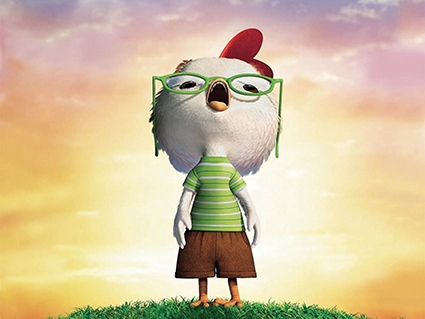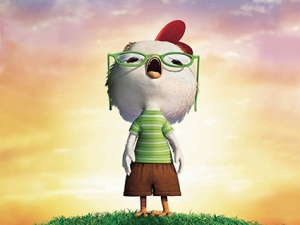Chicken Little & the Georgian Media
OPED
Media is a big deal in Georgia, as it happens to be in any other indigenous culture in the world, but there is a slight difference between what Georgia’s press looks, feels and reads like and the means of mass communication in the rest of the world.
Throwing in a couple of characteristic features of our local press might suffice to help you understand its gist and essence. The prevalent color of the Georgian press is mostly yellow with eye-catching headlines. And there must be more to those headings than only a plain desire to sell better.
The readers’ taste is certainly compatible, and there is a reason to say that – it has been methodically and perseveringly built up and nursed throughout the last quarter of a century.
Another stand-out feature is the hysterical tone and content of the press here. Reading through the Georgian press, you are left with the impression that the sky is falling on our heads.
Still another trait that could definitely be attributed to our press is its utterly stereotypical image – you take all our newspapers and shuffle their pages into one paper and you will never guess that the pages are extracted from various newspapers unless you catch sight of the title of the paper in between.
Another element that makes the Georgian press distinguishable is the weirdness and irrelevance of its headlines. I have been reading the Western press since I was a college student where it was often enough to merely have a cursory look at its pages to know forthwith what you wanted to read and what not. Here in Georgia, unless you go down to the bottom of the article, you will never get what it is all about.
And finally, the interviews! The press is full of interviews; television is brimming with interviews; and the radio is packed with interviews, too. Interviews dominate our media. I call it ‘interview journalism.’ Not that I am against this journalistic genre! I am simply against the abundance of interviews everywhere. I would rather go for features, op-eds, analytical endeavors, investigative efforts, entertainment pieces, sports and arts flashes, and of course, for sporadic interviews with some persons of consequence that could be prompted by some special circumstance. In most of the well-known and well-selling local magazines, you will come across ten or even more interviews per issue, most of which are hardly readable. Yet people buy those magazines and read them.
As I said, this kind of taste has been hammered out persistently, and it cannot be stamped out very easily. What bothers me most is that, being the readers of our own press, we are using up plenty of our valuable time on imbibing the kind of information without which we could easily survive. If we admit and consider as given that time is one of the most valuable commodities in the complicated modern world, then the way we are being informed by our press is not optimal and reasonable. I need my newspaper, as any other media, for three main reasons, and this is classic: a) to be informed to make my life easier, b) for the educational purpose of having a chance to turn myself into an appealing person, and c) for slight entertainment and relaxation. Period! I do not need my newspaper for gossip-mongering, although the occasional tittle-tattle might help my brain get distracted from regular daily routine – but only occasional and light.
This is all, of course, on a theoretical basis, and if I present here the practical side of the issue, we may all be surprised how absurd most of the articles we read sound. The same can be said of those sensational TV and radio talk shows. Both as journalist and consumer, I have always longed to deal with a press that wants to be specific, does all it can to carry me away, and which refuses to be watery, so that I know I will not have wasted my time when I close my paper and throw it away.
Nugzar B. Ruhadze












